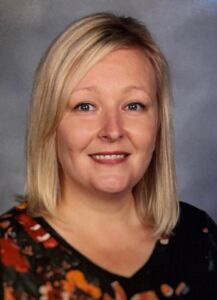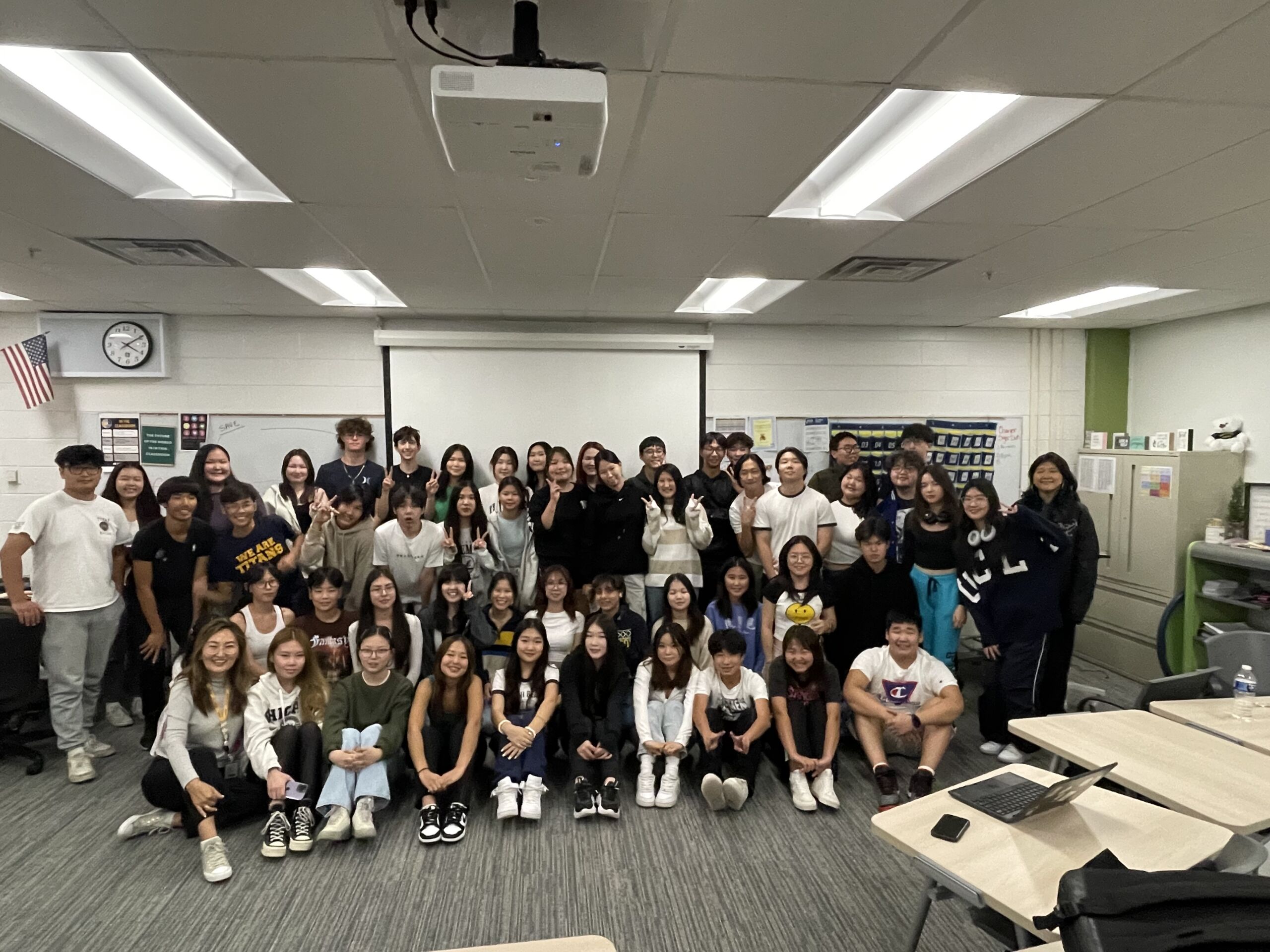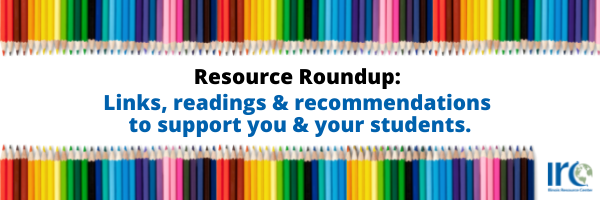 Over the past few months, the IRC has asked members of our community to nominate Illinois teachers working with multicultural, multilingual students who are going above and beyond, and now, we’re celebrating them and highlighting their work. Keep an eye out for these features in the coming months – and if you’d like to nominate someone, email leanet@cntrmail.org. Next up is Eva Schutter, an EL teacher at Aux Sable Middle School in Plainfield School District 202.
Over the past few months, the IRC has asked members of our community to nominate Illinois teachers working with multicultural, multilingual students who are going above and beyond, and now, we’re celebrating them and highlighting their work. Keep an eye out for these features in the coming months – and if you’d like to nominate someone, email leanet@cntrmail.org. Next up is Eva Schutter, an EL teacher at Aux Sable Middle School in Plainfield School District 202.
Says Paul Duris, who nominated her: “I am nominating Eva Schutter for this recognition because she is a good example of what a teacher should be. She is a competent ESL Bilingual-teacher with strong work ethics. She possesses an open, accessible personality, and she is sensitive to the issues involved in cross-cultural communication as well as relationships at a professional level. I consider Mrs. Schutter to be a very competent specialist in such fields as English language teaching methodology, educational technologies, language testing, assessment and material design. Her research interests in applied linguistics are related to ESL teaching methodology.
Eva Schutter works closely with her students and prepares them for the future . She has been in charge of the ELL program at the former high school where she worked and developed ESL teaching materials from a broad range of sources – books, academic journals, magazines, and newspapers. Under her supervision students wrote essays and research papers, gave oral presentations and debated on a large number of topics. She has taught students from a variety of countries and language abilities.. In addition to teaching Mrs. Schutter has actively participated in extra-curricular activities such as Leading her schools Speech Club and started a club for her Latinos.
She has worked with newcomers transitioning to the US for the past 16 years by providing a welcoming, inclusive, and supportive classroom environment, as well as students who need content support to be successful in their classes. Eva makes every student that walks in her door feel special and valued. She makes learning fun and appreciates her students and their cultures. She teaches and nurtures the whole child.”
Eva Schutter did not think she would be teaching multilingual learners when she was an undergraduate minoring in linguistics.
Now, she has been teaching multilingual learners from middle school to adulthood and working with newcomers for more than 16 years.
“I use knowledge of linguistics in my work,” she says. “It helps me with difficulties that some English learners have that others do not have and helps me provide resources and scaffolding for students. There’s many areas of linguistics, but using concepts like multiple meaning words or untranslatable words, helps me understand challenges some speakers might have. For example, tenses might not exist in Chinese. It’s very overwhelming because it’s a concept that’s not in their native language.”
And as the idea that languages are multifaceted informs her work, she has also learned that the needs of newcomers are diverse and multifaceted. But no matter the specific needs, she says one truth is universal – newcomer students need to be supported emotionally and socially.
“A lot of students come from areas where moving is a disruption, but also what they’re arriving from, whether it be war, danger, socioeconomic strife,” she says. “The emotional piece has to come first and the comfort and the trust and really understanding the background of the student and how we can support them. That’s the immediate concern.”
She says the adage about “Maslow before Bloom” applies to multilingual learners and that the student’s well being should be the priority, employing tactics such as native language supports, a buddy system with other students, seeking schedules to help pair up responsible, respectful peers with newcomer learners and ensuring students can confidently and independently function within the school day. “They’re going to get the English,” she says. “It’ll be okay.”
Working with newcomers for this long means Schutter has seen lots of advancement in supports and tools available for multilingual learners. When she started, it was a hardcover translation dictionary, and now there are imperfect, but better, instant translation tools.
To Schutter, working with newcomers means educators are not just teachers, but have to be social workers, figuring out community resources and even supporting students with applying for college and filling out financial aid.
It also means building community. At her previous school, Schutter worked alongside students to found a club called Heal (Helping Empower American Latinos), focused on leadership and social justice for Latine students and giving them a safe place to talk about their families and experiences.
HEAL provided students with important connections, too – the club’s president, who arrived in the United States at two years old, campaigned for local government in Will County, so she and other members connected and met with Latino politicians like now-Congressman Chuy Garcia.
And going that extra mile for students can make a world of difference. Schutter tells the story of one of her newcomers, a student from Mexico, who arrived to her district knowing no English. There came a point in his education where had to leave his family’s home, so the student reached out to Schutter, needing somewhere to stay because he wanted to finish high school. Through her connections, another teacher was able to take him in. Schutter continued to advocate for him as he went through high school, seeing his potential in science and engineering and pushing for him to be in AP Physics courses. “
He made 3D glasses out of cardboard and could solve a Rubik’s cube in the blink of an eye,” she says. “I said, he needs to be in this class.”
Schutter was one of the guests for the student’s graduation from Joliet Junior College. He went on to graduate from the University of Illinois-Chicago with a degree in electrical engineering. He and Schutter still keep in touch to this day, and he’s doing fantastically. “Imagine if we denied that boy with such a scientific mind based on language,” she says.
Her advice for fellow educators? Have patience. Breathe. Remember to seek progress, not perfection when working with newcomers. “We’re looking for cues,” she says. “Are they progressing? Are they asking their gen ed teachers to use the bathroom? Are they paying attention to social cues? It’s not going to be a perfect process, but we should be checking for progress. We’re going to see a different student by Winter Break.”



